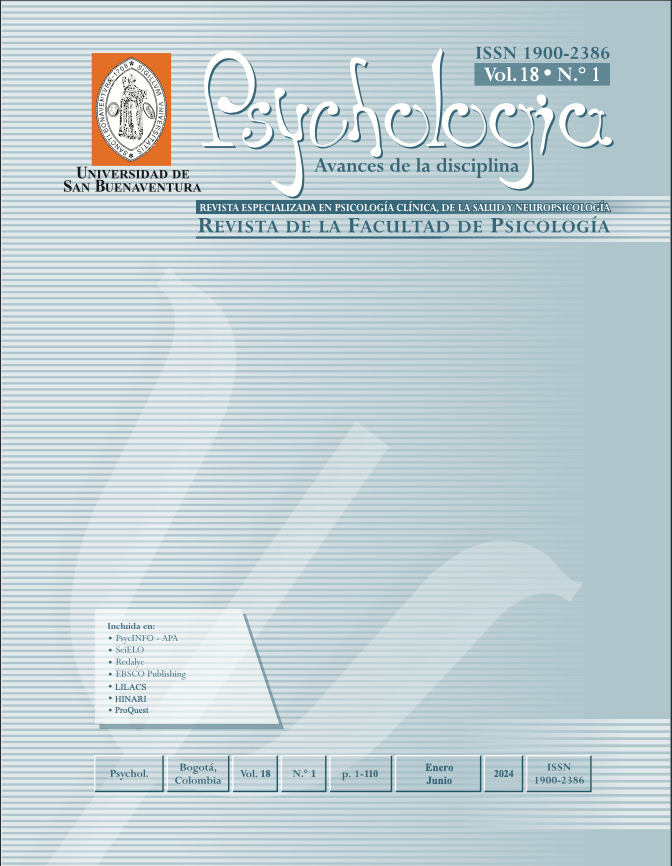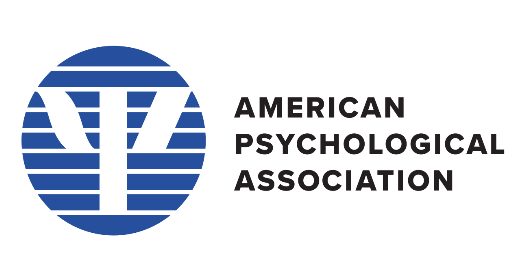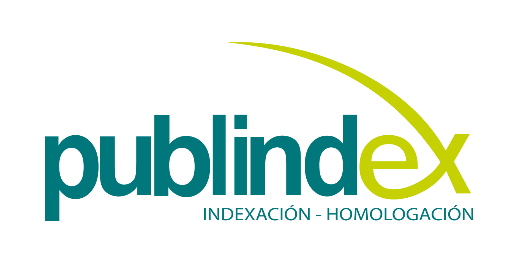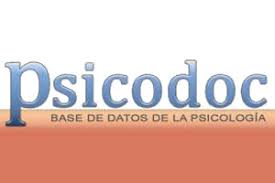Esta revista proporciona un acceso abierto inmediato a su contenido, basado en el principio de que ofrecer al público un acceso libre a las investigaciones ayuda a un mayor intercambio global de conocimiento.
Por tanto se acoge a la Licencia Creative Commons 4.0 Atribuciones Reconocimiento – NoComercial – CompartirIgual (by-nc-sa): No se permite un uso comercial de la obra original ni de las posibles obras derivadas, la distribución de las cuales se debe hacer con una licencia igual a la que regula la obra original.
http://creativecommons.org/licenses/by-nc-sa/4.0/
Resumen
La salud mental en estudiantes universitarios es un tema de creciente interés y preocupación en la investigación actual. Existe un número importante de estudios que dan cuenta de que los estudiantes universitarios enfrentan altos niveles de estrés, ansiedad y trastornos psicológicos, lo que se agudizó durante la pandemia por COVID-19. La presente revisión sistematiza la literatura sobre intervenciones vinculadas a ansiedad y el estrés realizadas por instituciones de educación superior en estudiantes universitarios entre los años 2010 y 2021. De un número inicial de 126 artículos, fueron finalmente seleccionados 13 artículos para ser analizados en profundidad en función de sus objetivos, tipo de investigación, muestra, instrumentos utilizados, tipo de intervención, resultados y conclusiones. Los resultados muestran que las intervenciones son eficaces, siendo los modelos cognitivo conductual y basados en mindfulness los más utilizados, en modalidad grupal y presencial. Aunque los hallazgos son útiles para diseñar nuevas intervenciones, es necesario profundizar en investigaciones que consideren variables como adherencia, género e integración de intervenciones no psicológicas como complemento a estrategias estandarizadas.
Palabras clave:
Referencias
Brasileira de Terapia Comportamental e Cognitiva, XIX(3), 190-211. https://doi.org//10.31505/rbtcc.v19i3.1069
Abreu, P. R. y Abreu. J. H. S. S. (2015). Ativação comportamental. In J. P . Gouveia, L. P. Santos, & M. S. Oliveira (Eds.), Terapias comportamentais de terceira geração: Guia para profissionais (pp. 406-439). Sinopsys.
Andrades, M., García, F., Concha, P., Valiente, C. y Lucero, C. (2021). Predictores de síntomas de ansiedad, depresión y estrés a partir del brote epidémico de COVID-19. Revista de Psicopatología y Psicología Clínica, 26(1), 13-22. https://doi.org/10.5944/rppc.28090
Auyeung, L. y Mo, P. K. H. (2018). The efficacy and mechanism of online positive psychological intervention (PPI) on improving well-being among Chinese university students: A pilot study of the best possible self (BPS) intervention. Journal of Happiness Studies, 20(8), 2525-2550. https://doi.org/10.1007/s10902-018-0054-4
Barrera-Herrera, A. y San Martín, Y. (2021). Prevalencia de sintomatología de salud mental y hábitos de salud en una muestra de universitarios chilenos. Psykhe (Santiago), 30(1). https://doi.org/10.7764/psykhe.2019.21813
Barrientos-Delgado, J., Espinoza-Tapia, R., Meza Opazo, P., Saiz, J. L., Cárdenas Castro, M., Guzmán-González, M., Gómez Ojeda, F., Bahamondes Correa, J. y Lovera Saavedra, L. (2019). Efectos del prejuicio sexual en la salud mental de personas transgénero chilenas desde el Modelo de Estrés de las Minorías: Una aproximación cualitativa. Terapia Psicológica, 37(3), 181-197. https://dx.doi.org/10.4067/S0718-48082019000300181
Barak, A., Hen, L., Boniel-Nissim, M. y Shapira, N. (2008). A comprehensive review and a meta-analysis of the effectiveness of internet-based psychotherapeutic interventions. Journal of Technology in Human Services, 26(2), 109-160. https://doi.org/10.1080/15228830802094429
Bayram, N. y Bilgel, N. (2008). The prevalence and socio-demographic correlations of depression, anxiety and stress among a group of university students. Social Psychiatry and Psychiatric Epidemiology, 43(8), 667-72. https://doi.org/10.1007/s00127-008-0345-x
Békés, V., Aafjes-van Doorn, K., Luo, X., Prout, T. y Hoffman, L. (2021). Psychotherapists’ challenges with online therapy during COVID-19: Concerns about connectedness predict therapists’ negative view of online therapy and its perceived efficacy over time. Frontiers in Psychology, 22, 1-10. https://doi.org/10.3389/fpsyg.2021.705699
Binfet, J. T., Passmore, H. A., Cebry, A., Struik, K. y McKay, C. (2017). Reducing university students’ stress through a drop-in canine-therapy program. Journal of Mental Health, 27(3), 197-204. https://doi.org/10.1080/09638237.2017.1417551
Bíró, V., Veres-Balajti, I., ÁDány, R. y Kósa, K. (2014). Social cognitive intervention reduces stress in Hungarian university students. Health Promotion International, 32(1), 73-78. https://doi.org/10.1093/heapro/dau006
Bolier, L., Haverman, M., Westerhof, G. J., Riper, H., Smit, F. y Bolhmejer, E. (2013). Positive psychology interventions: A meta-analysis of randomized controlled studies. BMC Public Health, 13, 119-38.
Blanco, C., Okuda, M., Wright, C., Hasin, D. S., Grant, B. F., Liu, S. M. y Olfson, M. (2008) Mental health of college students and their non-college-attending peers: Results from the national epidemiologic study on alcohol and related conditions. Archives of General Psychiatry, 65(12), 1429-1437. https://doi.org/10.1001/archpsyc.65.12.1429
Bruna, B., García, F., Rincón, P., Aravena, V. y Rivera, C. (2019). Intervenciones breves basadas en mindfulness para el tratamiento preventivo del estrés: Una revisión sistemática. Revista Argentina de Clínica Psicológica, 28(5), 693-702. https://doi.org/10.24205/03276716.2019.1113
Carpena, M. X., Tavares, P. D. S. y Menezes, C. B. (2019). The effect of a six-week focused meditation training on depression and anxiety symptoms in Brazilian university students with 6 and 12 months of follow-up. Journal of Affective Disorders, 246, 401-407. https://doi.org/10.1016/j.jad.2018.12.126
Cooke, R., Bewick, B., Barkham, M., Bradley, M. y Audin, K. (2006). Measuring, monitoring and managing the psychological well-being of first year university students. British Journal of Guidance & Counselling, 34(4), 505-517, https://doi.org/10.1080/03069880600942624
Cvetkovski, S., Jorm, A. y Mackinnon, A. (2019) An analysis of the mental health trajectories of university students compared to their community peers using a national longitudinal survey, Studies in Higher Education, 44(1), 185-200, https://doi.org/10.1080/03075079.2017.1356281
Chang, J., Yuan, Y., & Wang, D. (2020) Mental health status and its influencing factors among college students during the epidemic of COVID-19. Journal of Southern Medical University, 40(2), 171-176. https://dx.doi.org/10.12122/j.issn.1673-4254.2020.02.02
Dear, B. F., Johnson, B., Singh, A., Wilkes, B., Brkic, T., Gupta, R., Jones, M. P., Bailey, S., Dudeney, J., Gandy, M., Fogliati, R. y Titov, N. (2019). Examining an internet-delivered intervention for anxiety and depression when delivered as a part of routine care for university students: A phase IV trial. Journal of Affective Disorders, 256, 567-577. https://doi.org/10.1016/j.jad.2019.06.044
Eisenberg, D., Golberstein, E. y Gollust, S. E. (2007). Help-Seeking and Access to Mental Health Care in a University Student Population. Medical Care, 45(7), 594-601. https://doi.org/10.1097/mlr.0b013e31803bb4c1
Ennis, E., McLafferty, M., Murray, E., Lapsley, C., Bjourson, T., Armour, C., Bunting, B., Murphy, S. y O’Neill, S. (2019). Readiness to change and barriers to treatment seeking in college students with a mental disorder. Journal of Affective Disorders, 252, 428-434. https://doi.org/10.1016/j.jad.2019.04.062
Fusar-Poli, P., Salazar de Pablo, G., De Micheli, A., Nieman, D. H., Correll, C. U., Kessing, L. V., Pfennig, A., Bechdolf, A., Borgwardt, S., Arango, C. y van Amelsvoort, T. (2020). What is good mental health? A scoping review. European Neuropsychopharmacology, 31, 33-46. https://doi.org/10.1016/j.euroneuro.2019.12.105
Galante, J., Stochl, J., Dufour, G., Vainre, M., Wagner, A. P. y Jones, P. B. (2021). Effectiveness of providing university students with a mindfulness-based intervention to increase resilience to stress: 1-year follow-up of a pragmatic randomised controlled trial. Journal of Epidemiology and Community Health, 75, 151-160. https://doi.org/10.1136/jech-2020-214390
García, F. E., Andrades, M., Matus, F. R., Segovia, Z. D., Alarcon, S., Fonseca, I. y Lucero, C. (2022). Sintomatología y crecimiento postraumático en estudiantes de educación superior en Chile durante la pandemia por COVID-19. Actualidades en Psicología, 36(132), 1-16. https://doi.org/10.15517/ap.v36i132.45386
Graham, C., Franses, A., Kenwrit, M. y Marks, I. (2000). Psychotherapy by computer: A postal survey responders to teletext article. Psychiatric Bulletin 2000, 25, 12-14.
Hall, S. B., Brown, N. W. y Humphries, J. R. (2018). Premature termination from outpatient psychotherapy in a university-based counseling center. Counseling Outcome Research and Evaluation, 9(1), 28–41. https://doi.org/10.1080/21501378.2017.1302786
Hayes, S. C., Villatte, M., Levin, M. y Hildebrandt, M. (2010). Open, aware, and active: Contextual approaches as an emerging trend in the behavioral and cognitive therapies. Annual Review of Clinical Psychology, 7, 141-168. http://doi.org/10.1146/annurev-clinpsy-032210- 04449
Hindman, R. K., Glass, C. R., Arnkoff, D. B. y Maron, D. D. (2014). A comparison of formal and informal mindfulness programs for stress reduction in university students. Mindfulness, 6(4), 873–884. https://doi.org/10.1007/s12671-014-0331-1
Hunt, J., y Eisenberg, D. (2010). Mental health problems and help-seeking behavior among college students. Journal of Adolescent Health, 46(1), 3–10. https://doi.org/10.1016/j.jadohealth.2009.08.008
Ibáñez-Vizoso, J., Alberdi-Páramo, Í. y Díaz-Marsá, M. (2020) International mental health perspectives on the novel coronavirus SARS-CoV-2 pandemic. Revista Psiquiatría y Salud Mental, 13(2), 111-113. https://doi.org/10.1016/j.rpsm.2020.04.002
Jerez-Mendoza, M. y Oyarzo-Barría, C. (2015). Estrés académico en estudiantes del Departamento de Salud de la Universidad de Los Lagos Osorno. Revista Chilena de Neuropsiquiatría, 53(3), 149-157. http://dx.doi.org/10.4067/S0717-92272015000300002
Jones, G. y Stokes, A. (2009). Online counselling: a hand- book for practitioners. Palgrave Macmillan.
Jorquera, F., Marillanca, A. y Loyola, K. (2015). Salud mental e ingreso al ambiente universitario: Una aproximación a los significados de los estudiantes de primer año de la PUCV. (Tesis de licenciatura no publicada). Pontificia Universidad Católica de Valparaíso, Chile.
Kalak, N., Gerber, M., Kirov, R., Mikoteit, T., Yordanova, J., Pühse, U., Holsboer-Trachsler, E. y Brand, S. (2012). Daily morning running for 3 weeks improved sleep and psychological functioning in healthy adolescents compared with controls. Journal of Adolescent Health, 51(6), 615-622. http://dx.doi.org/10.1016/j.jadohealth.2012.02.020
Kivlighan, D. M., Schreier, B. A., Gates, C., Hong, J. E., Corkery, J. M., Anderson, C. L. y Keeton, P. M. (2020). The role of mental health counseling in college students’ academic success: An interrupted time series analysis. Journal of Counseling Psychology, 68(5), 562-570. https://doi.org/10.1037/cou0000534
Lejuez, C. W., Hopko, D. R., LePage, J., Hopko, S. D. y McNeil, D. W. (2001). A brief behavioral activation treatment for depression. Cognitive and Behavioral Practice, 8(2), 164-175. https://doi.org/10.1016/S1077-7229(01)80022-5
Lloyd, M. (2020). Desigualdades educativas y la brecha digital en tiempos de COVID-19. En H. Casanova Cardiel (Coord.), Educación y pandemia: Una visión académica (pp. 115-121). Universidad Nacional Autónoma de México.
López, M. M., Baldrich, I., Ruiz, A., Cortés, A. E., Lopezosa, T. y Roman, P. (2017). Effects of biodanza on stress, depression, and sleep quality in university students. The Journal of Alternative and Complementary Medicine, 23(7), 558-565. https://doi.org/10.1089/acm.2016.0365
López, R. y Sánchez, P. (2023). Actualización sobre el aumento de trastornos mentales en la adolescencia y estrategias de manejo clínico en Atención Primaria. En: AEPap (ed.), Congreso de Actualización en Pediatría 2023 (pp. 23-31). Lúa Ediciones.
Macaskill, A. (2013). The mental health of university students in the United Kingdom. British Journal of Guidance and Counselling, 41(4), 426-441. https://doi.org/10.1080/03069885.2012.743110
Main, A., Zhou, Q., Ma, Y., Luecken, L. J. y Liu, X. (2011). Relations of SARS-related stressors and coping to Chinese college students' psychological adjustment during the 2003 Beijing SARS epidemic. Journal of Counseling Psychology, 58(3), 410–423. https://doi.org/10.1037/a0023632
Marks, I., Cavanagh, K. y Gega, L. (2007). Hands-on help computer-aided psychotherapy. Psychology Press.
Martínez, J. (2020) Salud mental en estudiantes chilenos durante confinamiento por Covid-19: Revisión bibliográfica. Revista Educación las Américas, 10(2), 1-12. https://doi.org/10.35811/rea.v10i2.126
Mechili, E. A., Saliaj, A., Kamberi, F., Girvalaki, C., Peto, E., Patelarou, A. E., Bucaj, J. y Patelarou, E. (2021). Is the mental health of young students and their family members affected during the quarantine period? Evidence from the COVID-19 pandemic in Albania. Journal of Psychiatric and Mental Health Nursing, 28(3), 317-325. https://doi.org/10.1111/jpm.12672
Methley, A. M., Campbell, S., Chew-Graham, C., McNally, R. y Cheraghi-Sohi, S. (2014). PICO, PICOS and SPIDER: A comparison study of specificity and sensitivity in three search tools for qualitative systematic reviews. BMC Health Services Research, 14, 579. https://doi.org/10.1186/s12913-014-0579-0
Mistler, B., Reetz, D., Krylowicz, B. y, Barr, V. (2012). The Association for University and College Counseling Center Directors Annual Survey. Reporting period: September 1, 2011 through August 31, 2012. http://files.cmcglobal.com/Monograph_2012_AUCCCD_Public.pdf
Moher, D., Liberati, A., Tetzlaff, J., Altman, D. G. y, The PRISMA Group (2009). Preferred reporting items for systematic reviews and meta-analyses: The PRISMA Statement. PLoS Medicine, 6(7), e1000097. https://doi.org/10.1371/journal.pmed.100009.
Molla, H., Salabifard, S., Mousavi, S. M. y Sobhani, Z. (2015). The effectiveness of group training of CBT-based stress management on anxiety, psychological hardiness and general self-efficacy among university students. Global Journal of Health Science, 8(6), 47-54. https://doi.org/10.5539/gjhs.v8n6p47
Mowbray, C. T., Megivern, D., Mandiberg, J. M., Strauss, S., Stein, C. H., Collins, K., Kopels, S., Curlin, C. y Lett, R. (2006). Campus mental health services: Recommendations for change. American Journal of Orthopsychiatry, 76(2), 226-237. https://doi.org/10.1037/0002-9432.76.2.226
Odriozola-González, P., Planchuelo-Gómez, Á., Irurtia, M. J. y de Luis- García, R. (2020). Psychological effects of the COVID-19 outbreak and lockdown among students and workers of a Spanish university. Psychiatry Research, 290, 113108. https://doi.org/10.1016/j.psychres.2020.113108
Ordorika, I. (2020). Pandemia y educación superior. Revista de la Educación Superior, 49(194), 1-8. http://resu.anuies.mx/ojs/index.php/resu/article/view/1120/427
Otte C. (2011). Cognitive behavioral therapy in anxiety disorders: Current state of the evidence. Dialogues in Clinical Neuroscience, 13(4), 413-421. https://doi.org/10.31887/DCNS.2011.13.4/cotte
Pittaway, S., Cupitt, C., Palmer, D., Arowobusoye, N., Milne, R., Holttum, S., Pezet, R. y Patrick, H., (2009). Comparative, clinical feasibility study of three tools for delivery of cognitive behavioural therapy for mild to moderate depression and anxiety provided on a self-help basis. Mental Health in Family Medicine, 6(3), 145-154.
Räsänen, P., Muotka, J. y Lappalainen, R. (2020). Examining mediators of change in wellbeing, stress, and depression in a blended, Internet-based, ACT intervention for university students. Internet Interventions, 22, 100343. https://doi.org/10.1016/j.invent.2020.100343
Richards, D. (2009). Features and benefits of online counselling: Trinity College online mental health community. British Journal of Guidance & Counselling, 37(3), 231-242. https://doi.org/10.1080/03069880902956975
Rodgers, L. S. y Tennison, L. R. (2009). A preliminary assessment of adjustment disorder among First-Year College Students. Archives of Psychiatric Nursing, 23(3), 220-230. https://doi.org/10.1016/j.apnu.2008.05.007
Saleh, D., Camart, N., Sbeira, F. y Romo, L. (2018). Can we learn to manage stress? A randomized controlled trial carried out on university students. PLOS ONE, 13(9), e0200997. https://doi.org/10.1371/journal.pone.0200997
Sabiston, C. M., Jewett, R., Ashdown-Franks, G., Belanger, M., Brunet, J., O’Loughlin, E., y O’Loughlin, J. (2016). Number of years of team and individual sport participation during adolescence and depressive symptoms in early adulthood. Journal of Sport and Exercise Psychology, 38(1), 105-110. https://doi.org/10.1123/jsep.2015-0175
Sang, K. (2019). Effects of a yoga nidra on the life stress and self-esteem in university students. Complementary Therapies in Clinical Practice, 35, 232-236. https://doi.org/10.1016/j.ctcp.2019.03.004
Sheldon, E., Simmonds-Buckley, M., Bone, C., Mascarenhas, T., Chan, N., Wincott, M., Gleeson, H., Sow, K., Hind, D. y Barkham, M. (2021). Prevalence and risk factors for mental health problems in university undergraduate students: A systematic review with meta-analysis. Journal of Affective Disorders, 287, 282-292. https://doi.org/10.1016/j.jad.2021.03.054
Swift, J. K. y Greenberg, R. P. (2012). Premature discontinuation in adult psychotherapy: A meta-analysis. Journal of Consulting and Clinical Psychology, 80(4), 547-559. https://doi.org/10.1037/a0028226
Thorley C (2017). Not By Degrees: Improving student mental health in the UK's Universities, IPPR. http://www.ippr.org/research/publications/not-by-degrees
UNESCO (2020). La interrupción educativa y respuesta al COVID-19. https://es.unesco.org/covid19/educationresponse
Wood, E., Ohlsen, S., Thompson, J., Hulin, J. y Knowles, L. (2017). The feasibility of brief dog-assisted therapy on university students stress levels: The PAwS study. Journal of Mental Health, 27(3), 263-268. https://doi.org/10.1080/09638237.2017.1385737
Xiang, Y. T., Yang, Y., Li, W., Zhang, L., Zhang, Q., Cheung, T. y Ng, C. H. (2020). Timely mental health care for the 2019 novel coronavirus outbreak is urgently needed. The Lancet Psychiatry, 7(3), 228-229. https://doi.org/10.1016/S2215-0366(20)30046-8
Xiao, H., Castonguay, L. G., Janis, R. A., Youn, S. J., Hayes, J. A. y Locke, B. D. (2017). Therapist effects on dropout from a college counseling center practice research network. Journal of Counseling Psychology, 64(4), 424-431. https://doi.org/10.1037/cou0000208
Zapata-Ospina, J. P., Patiño-Lugo, D. F., Vélez, C. M., Campos-Ortiz, S., Madrid-Martínez, P., Pemberthy-Quintero, S., Pérez-Gutiérrez, A., Ramírez-Pérez, P. y Vélez-Marín, V. M. (2021). Intervenciones para la salud mental de estudiantes universitarios durante la pandemia por COVID-19: Una síntesis crítica de la literatura. Revista Colombiana de Psiquiatría, 50(3), 199-213. https://doi.org/10.1016/j.rcp.2021.04.007
Zhai, Y. Du, X. (2020). Addressing collegiate mental health amid COVID-19 pandemic. Psychiatry Research, 288, 113003. https://doi.org/10.1016/j.psychres.2020.113003






















